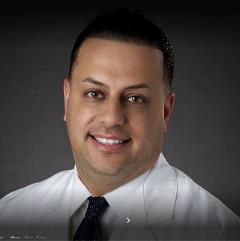Find an Oncologist
Colorectal Cancer Trending Younger
Cancer knows no age. In the past, the average age hit by colorectal cancer ranged from 68-72 years old. However, young-onset colorectal cancer is on the rise, according to the American Cancer Society. The third most common cancer in the United States is colorectal cancer, and it is also the second leading cause of cancer death. Also, cancer knows no gender. It affects men and women across all races and ethnic groups. People of color are more likely to have colorectal cancer at a young age than Whites, but the gap is closing.
Causes of Colorectal Cancer
The cause of the jump in colorectal cancer cases among young adults is still uncertain. However, rising incidence of colorectal cancer by generation suggests that the cause might be environmental rather than biological. Just like with other diseases and conditions, the following may increase a person’s risk for having colorectal cancer:
- Obesity
- Physical Inactivity
- Gut bacteria
- History of cancer
- Certain genetic conditions
Symptoms of Colorectal Cancer
The common symptoms of colorectal cancer include the following:
- Diarrhea and/or constipation
- Change in stool consistency or stools getting narrower
- Cramps, gas, pain and/or feeling full or bloated
- Nausea
- Vomiting
- Blood in stool
- Feeling weak or fatigued that may be accompanied with anemia
- Losing weight for no reason
When Should I See a Doctor?
Please schedule an appointment with a doctor as soon as you experience any of the symptoms above. But it’s good to note that the early signs of cancer often do not include pain. Colorectal cancer may be considered a silent killer because you may not see any symptoms at all. This is also why it’s recommended to make time for regular annual check-ups. Remember: early detection can save lives. Young-onset colorectal cancer is often misdiagnosed, so, if possible, seek a second opinion.
Take Action!
With the rising cases of colorectal cancer in younger individuals, spreading awareness can help decrease mortality rates and increase survival percentages. Some of the ways you can take a step to prevent colon cancer and spread awareness include:
- Educating You and Your Family
Know that colorectal cancer is not an “old man’s disease.” It can affect everyone. Awareness is the first part of taking action. Educate yourself and your family about the symptoms and risks of colorectal cancer by signing up for health-related newsletters and/or reading more about this disease. - Knowing your Risk
On average, young-onset patients wait for 6.2 months before going to the doctor. If you know you have a family history of colorectal cancer or any similar condition, take the leap and get yourself screened. - Being Your Own Health Advocate
Be proactive. If you suspect there’s something wrong with your body, please have yourself checked, and get double checked also.
Please take care of yourself and stay aware. We’re here when you need us. As always, your safe care is our #1 priority.
Sources:
Colorectal Cancer Alliance
National Cancer Institute


